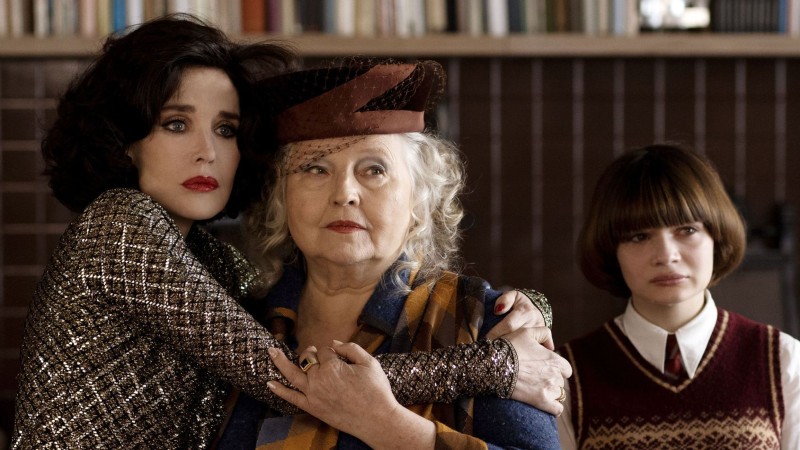QUICK SNAP: LIVE FROM BERLIN!
The limits of good intentions are sorely tested in Robe of Gems, a moody crime-and-family drama simply too inscrutable for its own good. Despite boasting assured mise-en-scène, fine naturalist performances and a sense of lingering dread, it had me constantly asking all the wrong questions, namely: who, what, when and how?
The where is easy. This is rural Mexico, a place where crime appears to be rife and even the local police are in on the take. Gangsters boast of the ease with which they can buy guns from a show in the USA, disassemble them and then legally transport the parts across the border. The middle-class Isabel (Nailea Norvind) returns to her mother’s villa, where they learn that their long-time domestic servant María’s (Antonia Olivares) sister has gone missing. Isabel, despite warnings to the contrary, goes on a quixotic quest to get to the bottom of this drama, her story intersecting with a policewoman’s son (Juan Daniel Garcia Treviño) working for the local cartel.
This is Natalia López Gallardo’s first feature, having previously worked as an editor on the films of Amat Escalante, Lisandro Alonso and Carlos Reygadas. There is a touch of Reygadas to the start of the film featuring a long take of the sunrise that brings to mind Silent Night (2007). And despite the real-life relevance of the story — considering a shocking 100,000 people are currently missing in Mexico – she takes a similarly slow and atmospheric approach throughout the entire film.
On a purely formal level, it’s very well-made and contemplative: whether it’s shooting at the twilight hour, delving into dream sequences, making use of epic floating takes or turning up the sound of insects to an almost unbearable degree. But it doesn’t proceed story-wise with dream logic, allowing us to find poetic connections between characters, but with a kind of 4D chess approach — making it hard to know who is who, why they are acting in certain ways or why we should care. This approach is most effective when these women brush up against the banality of evil found in the local crime scene, but I don’t know why the film itself had to be so banal at the same time.
In the right hands, this kind of angular drama can be effective, such as Ridley Scott’s The Counsellor (2013), which had a similar sense of tragic inevitability while also needing a roadmap to sort things out. But on top of becoming confused, I was also annoyed: the film more interested in piling moments together than ever throwing in a few clues to help us along. Additionally, the camera often shoots scenes where we only see one character’s face while the other is talking, or with no one’s face at all; simply lingering on the tools they use at work or eating at the family table. While in a drama with a couple of players, this approach makes sense, it proves fatal in an ensemble piece.
By the end, I had one final question to ask myself: why? I definitely can’t answer that one.
Robe of Gems just premiered in competition at the 72nd Berlin International Film Festival, running from 10-20th February!









